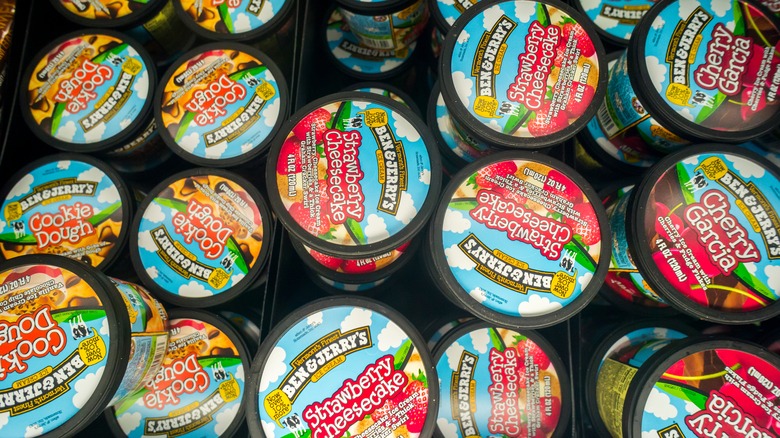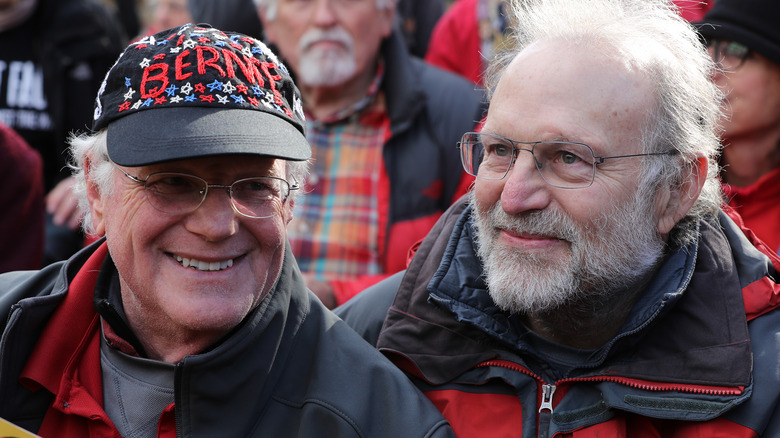Ben & Jerry's Unique Take On Corporate Activism
In 1988, a decade after opening the first Ben & Jerry's inside of a renovated gas station in Vermont, co-founders Ben Cohen and Jerry Greenfield wrote their first mission statement (via Huffpost). With it, the company set an intention to make an impact that went beyond ice cream by prioritizing its progressive values: racial equality and sustainability. It was an unusual idea for the time, business owners were rarely vocal about such problems. Despite the potential controversy, they moved forward and launched the brand's first activism-linked product: The Peace Pop, a chocolate-covered ice cream bar in a wrapper that protested the Reagan administration's nuclear defense program.
More than 30 years later, in a climate where consumers hold corporate social responsibility higher than ever, per HBR, Ben & Jerry's is thriving. While other companies struggle to convince customers of their commitment to combatting the pressing issues of the time, Ben & Jerry's long history has built an unspoken trust. From bold statements about upending white supremacy on Instagram, to "purpose pints," their line of plant-based ice creams made in collaboration with politically active figures, people believe in their work. So, when the childhood friends and co-founders sold the company to Unilever, they fought to require the company to continue to spend at least $1.1 million annually on activism alone.
Today, Ben & Jerry's continues to live by the mission set by its founders in the '80s — providing a leading example of how to do corporate activism, their way.
The Ben & Jerry's way
Since then, Huffpost says that Ben & Jerry's has built a department dedicated to the company's activism. Chris Miller leads a team of people with backgrounds in policy and advocacy. However, unlike other companies that give large donations to show their commitment to social justice, their team is focused on developing long-term relationships with various grassroots organizations. From Black Lives Matter groups like Equality for Flatbush to the Communities for Clean Water coalition (via Ben & Jerry's Foundation), Ben & Jerry's offers their corporate power to magnify the missions of the people directly facing these issues and bring solutions.
So, when things go down, they're calling the nonprofit organizations they work with, and any statement they make is run by them (via HBR). Those relationships inform their responses to current events, not selling ice cream. Although, they have seen strong growth in that department. CEO Matthew McCarthy told HBR that data shows their fans are aware of the company's efforts in activism, and it's made them more supportive of the business. In the same interview, Miller referenced a quote from Ben Cohen, Ben & Jerry's co-founder: "The strongest bond you can create with customers is around a shared set of values." While it's true Ben & Jerry's does make great ice cream, Miller believes that the loyalty people have for the brand is driven by their beliefs.

